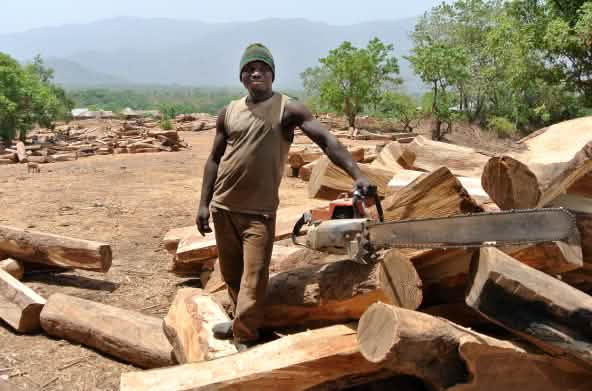
Completed campaign
Palm oil is NOT green fuel - stop the trip to destruction!
A Japanese utility company wants to use palm oil as supposedly “renewable” energy to generate power. Yet palm oil biofuel is dirtier than coal – and it's produced by an industry notorious for wholesale forest destruction and human rights violations. Tell the utility company that palm oil is anything but “green”!
To: the management of H.I.S. Co. Ltd: Mr. Hideo Sawada, Chairman (CEO); Mr. Shohei Akao, CEO, H.I.S. Super Power
“Do not build a palm oil power plant in Kakuda City that would destroy tropical forests and harm future generations!”“Love, Peace, Travel”, written on a mosaic of beautiful images of destinations – that’s how Japanese travel giant H.I.S. would like to be seen by the rest of the world.
Love and Peace. Seriously? If H.I.S. subsidiary Super Power keeps pushing for the construction of a palm oil fired power plant in Kakuda City, Japan, then “Deforestation, Destruction, Human Rights Violations” would be a more fitting slogan.
In Malaysia and Indonesia – the biggest exporters of palm oil – the habitat of orangutans and other endangered wildlife is being destroyed to make room for industrial plantations. Tropical forests and peatland are being clear-cut, emitting vast amounts of CO2. Plantation companies routinely violate the human rights of indigenous peoples and workers, and land grabbing and forced labor are commonplace.
Palm oil is not renewable energy. It not only harms tropical forests and their inhabitants, it’s also terrible for the global climate: in terms of CO2 emissions, palm oil biofuel is dirtier than coal.
The European Union is phasing out palm oil as a source of energy by 2030. Exporters such as Indonesia and Malaysia are therefore searching for new markets – and targeting Japan. The country needs an alternative to nuclear power after the catastrophe in Fukushima 2011 and is welcoming palm oil. The Japanese government is willing to greenwash the tropical oil by trusting the industry label RSPO (Roundtable on Sustainable Palm Oil).
H.I.S. is one of the first companies to jump on this bandwagon to destruction, so we need to stop this project before it becomes a trend.
Please sign our joint petition with Friends of the Earth Japan and tell H.I.S. that burning palm oil for power generation is anything but “green”!
H.I.S. Co., Ltd.
H.I.S. Co., Ltd. is a travel agency based in Tokyo specializing in low-cost package tours. The company was founded as International Tours Co., Ltd. in 1980 by Hideo Sawada and was renamed "H.I.S." in 1990.
https://en.wikipedia.org/wiki/H.I.S._(travel_agency)
H.I.S. has 303 branches throughout Japan and a global network of 185 branches in 124 cities abroad, including London, Paris, Madrid, Frankfurt am Main, Zurich, and Vienna.
https://www.his.co.jp/en/company/group/
H.I.S. holds a majority stake in Orion Tour, Asia Atlantic Airlines and a minority stake in Skymark Airlines. It owns two hotels in Australia and the cruise company Cruise Planet.
H.I.S. SUPER Power Co., Ltd. is a subsidiary that generates electricity using supposedly “renewable” energy.
https://www.his.co.jp/en/energy/
The plant in Kakuda City is expected to burn 70,000 tons of palm oil a year. Based on an average yield of four tons per hectare, 17,500 hectares of land would be needed to supply. As yields are likely to be lower, the land required could be greater.
Japan is expected to consume 805,000 tons of palm oil in 2019, more than double the amount of the year 2000 (385,000 t). Malaysia is Japan’s biggest supplier.
https://www.indexmundi.com/agriculture/?country=jp&commodity=palm-oil&graph=domestic-consumption
Further information
https://ec.europa.eu/energy/sites/ener/files/documents/Final%20Report_GLOBIOM_publication.pdf
https://www.theedgemarkets.com/article/commodities-japan-looking-secure-malaysian-cpo
The Guardian: 'This is daytime': bright red haze from Indonesian rainforest fires envelops city
Original petition text by FoE Japan
Do not construct the palm oil power plant that ruins tropical forests!!
Dear H.I.S., Do not construct the palm oil power plant that ruins tropical forests and future generations!
- One of the leading travel agencies in Japan, H.I.S. began constructing a power plant in Kakuda City, Miyagi Prefecture that utilizes palm oil. The plant is expected to burn about 70,000 tons of palm oil a year.
- In the countries that produce oil palm such as Malaysia and Indonesia, the habitats of wild animals are being destroyed as well as a large amount of CO2 being emitted due to peatland and tropical forest destruction.
- Burning palm oil for power generation leads to further destruction of tropical forests.
Mr. Hideo Sawada, H.I.S. Co., Ltd. Chairman (CEO)
Mr. Shohei Akao, CEO, H.I.S. Super Power
A leading travel agency in Japan, H.I.S. Co., Ltd. currently plans to construct a power plant that utilizes palm oil as a main source of fuel in Kakuda City, Miyagi Prefecture. This plant is expected to burn 70,000 tons of palm oil a year.
Palm oil is used in various products that people use on a daily basis, and is produced from oil palm. The major countries that produce oil palm are Malaysia and Indonesia, and production of oil palm has been a serious issue. Oil palm is usually produced on a large-scale, and this has led to a number of environmental problems such as destruction of tropical forests and peatlands, high CO2 emissions and diminishment of wildlife habitats. It causes not only these environmental problems but also social problems including human rights violation of farm workers by forced labor and land conflicts by oil palm plantation development.
The increasing demand for palm oil as food has already led to these environmental and social issues. If it is going to be used for power generation, it is clear that the situation surrounding these producing countries will worsen.
According to the research entrusted by the European Commission, CO2 emissions from palm oil is higher than CO2 emissions from coal when it is used as biomass fuel, with palm oil being 231g CO2-eq/MJ(note1) and coal 97.3gCO2-eq/MJ(note2). This indicates that power generation with palm oil is not suitable for renewable energy. For this reason, in the European Union, palm oil as biomass fuel is not considered as renewable energy.
In the Feed-In Tariff System (FIT), only the oil approved by the Roundtable for Sustainable Palm Oil (RSPO) can be used for power generation, but the problem is drastic increase in demand for palm oil will become the driving force to further develop oil palm plantations.
At the assembly in Kakuda City December 2018 and March 2019, the city council severely criticized this project by H.I.S., calling the city mayor to carefully reconsider this project and withdraw from it. Concerned about climate change and hoping for a true recovery from the Fukushima Daiichi Nuclear Disaster, local environmental organizations and citizens in Miyagi have been seeking for truly sustainable energy that does not bring any negative impacts on the environment and society of producing countries.
Your corporate philosophy is “to contribute to the advancement of world peace and mutual understanding by increasing the knowledge of people around the world through tourism, and thereby overcoming the differences of nationality, race, culture and religion,” and contributing to such an environmentally destructive power plant does not match your corporate philosophy. We thus urge you to stop the construction of the power plant.
Power generation with palm oil, as described above, will progress the damaging effects of climate change through high CO2 emissions and destruction of tropical forests. The climate strike started from a 15 year-old girl in Sweden in August of last year, grew into a world movement and more than 1,500,000 young people in over 2000 cities, 125 countries joined the world climate strike on March 15th. To protect tropical forests and the future of young generations and for a true recovery from the disaster on March 11, 2011, we demand H.I.S. withdraw from the palm oil power plant project in Kakuda City, Miyagi Prefecture.
note1)
ECOFYS Netherlands B.V., "The land use change impact of biofuels consumed in the EU -Quantification of area and greenhouse gas impacts", 27 August 2015, p.40
https://ec.europa.eu/energy/sites/ener/files/documents/Final%20Report_GLOBIOM_publication.pdf
note2) Estimated by the following data:
Environment of Ministry, Japan
https://ghg-santeikohyo.env.go.jp/
Institute of Energy Economics Japan
https://eneken.ieej.or.jp/data/old/pdf/enekei/lci.pdf
Organized by
Friends of the Earth Japan
WALHI (Friends of the Earth Indonesia)
Japan Tropical Forest Action Network
Plantation Watch
Hutan-Save the Tropical Forests
Citizens for community renovation in Gamo, Sendai
Citizens group against coal power in Sendai Bay
Citizens group supporting the constitution in Ichihara City
Kiko Network
Citizens network in Chiba Prefecture
Citizens group against coal power in Ichihara
Citizens group against coal power in Tokyo Bay
Citizens group against coal power in Soga, Chiba City
Policy research network for Sodegaura citizens
Chiba Environmental Information Center
Citizens group against coal power in Yokosuka
Mighty Earth
ASUKA Jyusen, Professor, Tohoku University
HASEGAWA Koichi, Professor, Tohoku University
HIROSE Toshio,
HOBO Takehiko, Honorary professor, Shimane University
HOSOKAWA Komei, Professor, Kyotoseika University
IINUMA Sayoko, Global Environmental Forum
INOUE Makoto, Professor, Waseda University
INOUE Tomoaki,
KONISHI Yukiko, Representative, Citizens group against coal power in Soga, Chiba City
MATSUBARA Hironao, , Chief researcher, ISEP
MATSUURA Makoto, Honorary professor, Miyagi College of Technology
MITOBE Hidetoshi, doctor
MITSUTA Kanna, Executive Director, Friends of the Earth Japan
MIZUGUCHI Takechi, Professor, Takasaki Keizai University
TERANISHI Shun’ichi, Professor, Hitotsubashi University
TODA Kiyosh, Professor, Nagassaki University
TOMARI Miyuki, Representative Director, Biomass Industry Netowrk
YAMASHITA Hidetoshi, Associate professor, Hitotsubashi University
YOKEMOTO Masahumi, Professor, Osaka-city University
To: the management of H.I.S. Co. Ltd: Mr. Hideo Sawada, Chairman (CEO); Mr. Shohei Akao, CEO, H.I.S. Super Power
Ladies and Gentlemen,
Your companies are currently planning to build a power plant that uses palm oil as its main source of fuel in Kakuda City, Miyagi Prefecture. The plant is expected to burn 70,000 tons of palm oil a year.
The production of oil palm in countries such as Malaysia and Indonesia is decimating the habitat of endangered wildlife such as orangutans. The clear-cutting of tropical forests and destruction of peatland is causing vast CO2 emissions. Oil palm plantations are notorious for social problems and human rights violations, including forced labor by farm workers and severe land conflicts.
Growing demand for palm oil by the food industry has led to the current environmental and social issues. The situation in producing countries will inevitably worsen if Japan uses palm oil for power generation.
According to research carried out on behalf of the European Commission, CO2 emissions from palm oil used as a biomass fuel are significantly higher than those from coal. Power generation with palm oil thus cannot be considered “green”. For this reason, the European Union will no longer recognize palm oil as a biomass fuel to be a form of renewable energy as of 2030.
Concerned about climate change and hoping for a true recovery from the Fukushima Daiichi Nuclear Disaster, local environmental organizations and citizens in Miyagi have been seeking truly sustainable sources of energy that do not harm the environment or have a negative social impact on producing countries.
Your corporate philosophy is to “contribute to the advancement of world peace and mutual understanding by increasing the knowledge of people around the world through tourism, and thereby overcoming the differences of nationality, race, culture and religion,” yet bearing responsibility for such an environmentally destructive power plant does not align with such a noble goal.
We therefore urge you to stop the construction of the power plant.
Yours faithfully,

